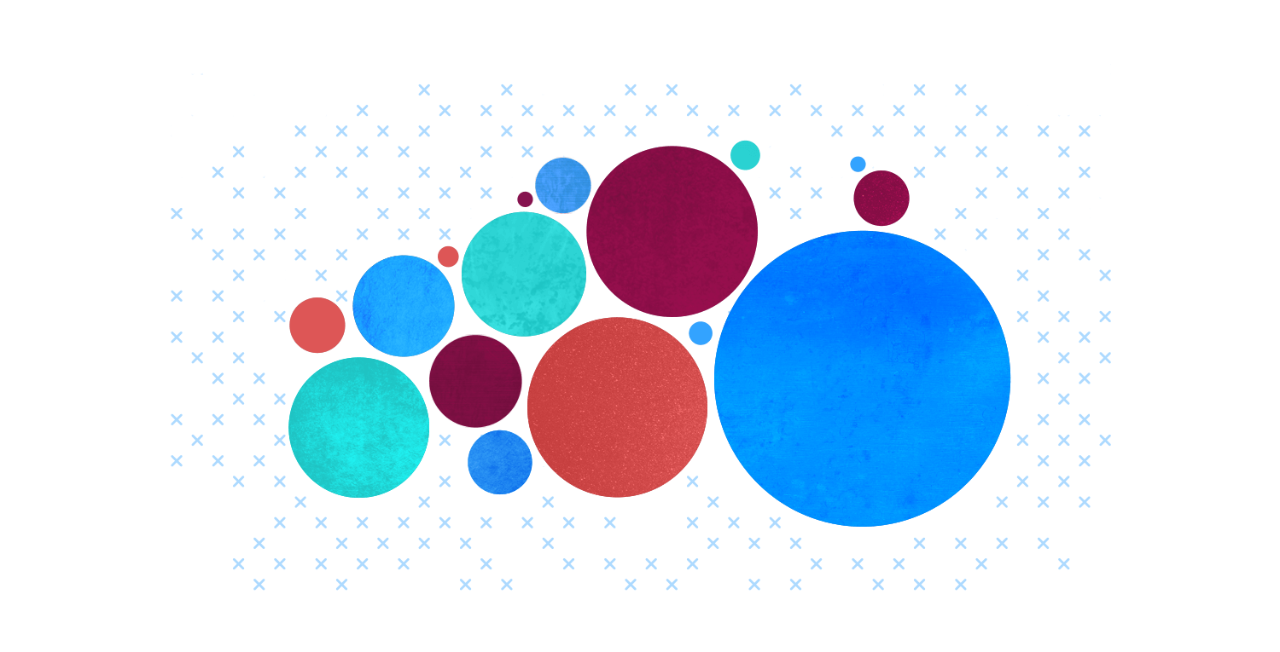HISTORIAS DE USUARIOS
De estudiante de medicina a analista de datos sénior
Al mantener la mente abierta, seguir su curiosidad y buscar el consejo de sus mentores, Geeta convirtió su interés por la tecnología en una carrera de éxito.
3 LECCIONES PRINCIPALES
- Sigue tus pasiones y tus intereses a medida que evolucionan.
- Aprovecha todos los recursos que tengas a tu alcance para dar el siguiente paso.
- Encuentra mentores que te ayuden a guiarte en el camino.
EL VIAJE
Licenciatura en ciencias
biológicas con especialización en nutrición
Doble máster
Máster en Salud Pública en epidemiología y un máster en ciencias biomédicas.
Asistente de investigación
en Health Research & Educational Trust of New Jersey. Aprendió el software SPSS, que despertó el interés por la exploración y el análisis de datos.
Beca
en epidemiología ORISE con la Dirección de Epidemiología y Vigilancia de Enfermedades del Centro de Salud Pública del Ejército de los Estados Unidos (APHC).
Reclutada
por las Fuerzas Aéreas de EE.UU. para un puesto de analista de datos, luego consiguió un puesto de analista de datos sénior en Nueva York.
Actualmente
inscrita en el programa de certificación de big data a través de la Academia SAS para la Ciencia de Datos.
VER LOS BENEFICIOS
SOBRE EL APRENDIZAJE DEL SAS®
Durante mi época de estudiante del Máster en Salud Pública, conocí SAS en una clase de bioinformática. Seguí utilizándolo en otros cursos.
#1
SAS es considerado como uno de los principales conocimientos que hay que tener en el mercado laboral analítico actual.
75%
de los profesionales quiere tener mentores, pero solo 37% tiene uno.
SOBRE LA BÚSQUEDA DE UN MENTOR
Mi carrera se ha convertido en esta increíble profesión en la que encontré mi nicho como resultado de varios mentores que reconocieron mis intereses y me guiaron en mi camino.
Hay tantas cosas geniales que aprender y no hay suficiente tiempo. ¡Necesito un clon!
MI HISTORIA
P: ¿Cuándo empezó a pensar en convertirse en analista de datos? ¿Había alguna habilidad o talento que tuviera de niña que le llevara en esta dirección?
R: Siempre tuve el deseo de dedicarme a la profesión médica y decidí seguir una trayectoria premédica mientras estaba en la universidad. Me licencié en ciencias biológicas en el Cook College de Rutgers, la Universidad Estatal de Nueva Jersey. Tras mi graduación, me ofrecieron un puesto en un laboratorio de enfermedades infecciosas como técnico de laboratorio clínico. Disfruté mucho de este trabajo y decidí hacer un máster en ciencias biomédicas, ya que consideré que consolidaría mi formación científica y continuaría en el campo CTIM.
Más tarde me reuní con el decano de la facultad y me animó a cursar un máster en salud pública con especialización en epidemiología. Este decano se convirtió más tarde en mi mentor.
P: En ese momento, ¿tenía una idea bastante sólida de lo que quería hacer en cuanto a su carrera, o todavía lo estaba descubriendo?
R: En el último año de mi programa, trabajé como asistente de investigación en el Health Research & Educational Trust of New Jersey, donde ayudé a diseñar, planificar y realizar investigaciones epidemiológicas. Aprendí nuevos programas informáticos para la exploración y el análisis de datos. Esto me resultó útil en mi siguiente puesto.
Lea más sobre la historia de Geeta
P: ¿Qué pasó después de la escuela de posgrado? ¿Consiguió un trabajo de inmediato?
R: Después de graduarme, acudí al centro de orientación profesional de mi escuela de posgrado para que me ayudaran con mi currículum, simulacros de entrevistas y búsqueda de empleo. Encontré trabajo en el Oak Ridge Institute for Science and Education; pensé que sería una gran oportunidad para adquirir experiencia en el sector de la administración federal. Solicité una beca ORISE de Epidemiología en la Dirección de Epidemiología y Vigilancia de Enfermedades del Centro de Salud Pública del Ejército de Estados Unidos. Como este puesto requería conocimientos de salud pública y de SPSS, encajaba perfectamente conmigo.
P: Está claro que le interesan la salud pública y la tecnología. ¿Qué fue lo primero, y cómo fusionó ambas cosas?
R: Mientras estaba en el Ejército, descubrí mi interés por el aspecto de la gestión de datos del proceso de investigación epidemiológica. Esto despertó mi deseo de buscar el siguiente puesto en la Fuerza Aérea: me contrataron para un puesto de analista de datos en el Departamento de Investigación de Salud Pública de la Escuela de Medicina Aeroespacial del Ejército del Aire. Me dio la oportunidad de utilizar mis conocimientos de SAS que aprendí en el programa de MPH, ¡y me encantó!
P: Háblenos de su trabajo actual. ¿Qué habilidades utiliza y qué le gusta de él?
R: Apoyo el Programa Global de Vigilancia de Patógenos Respiratorios del Departamento de Defensa en USAFSAM. Este programa vigila la carga de enfermedades respiratorias en el ejército a escala mundial para garantizar la protección de la salud de las fuerzas. Desempeño múltiples funciones en este equipo como analista de datos, epidemiólogo y apoyo ocasional a nuestro ingeniero de aplicaciones.
P: En retrospectiva, ¿hay algo que haría de forma diferente en su formación y trayectoria profesional?
R: Habría seguido más cursos de informática y tecnología en la escuela. Creo que eso me habría ayudado, pero la tecnología cambia constantemente. Para adelantarse a esas olas, hay que aprender continuamente.
Creo que es muy importante identificar a las personas que han estado donde tú quieres ir y aprovechar su sabiduría.
HERRAMIENTAS PARA EL ÉXITO
Base SAS® Software
Interfaz 4GL flexible y extensible y basada en la web para el acceso a los datos, la transformación y la elaboración de informes.
SAS® Enterprise Guide®
Acceda a la potencia de SAS desde una interfaz de Windows de apuntar y hacer clic.
Certificación SAS®
Obtenga una certificación en SAS para validar sus habilidades y diferenciarse.

Explore Amazing Careers in Analytics


